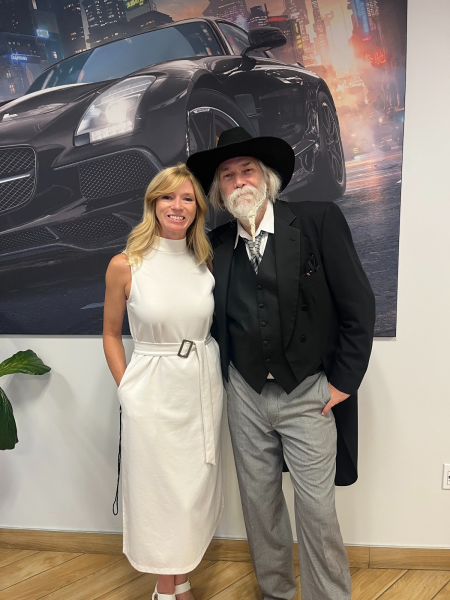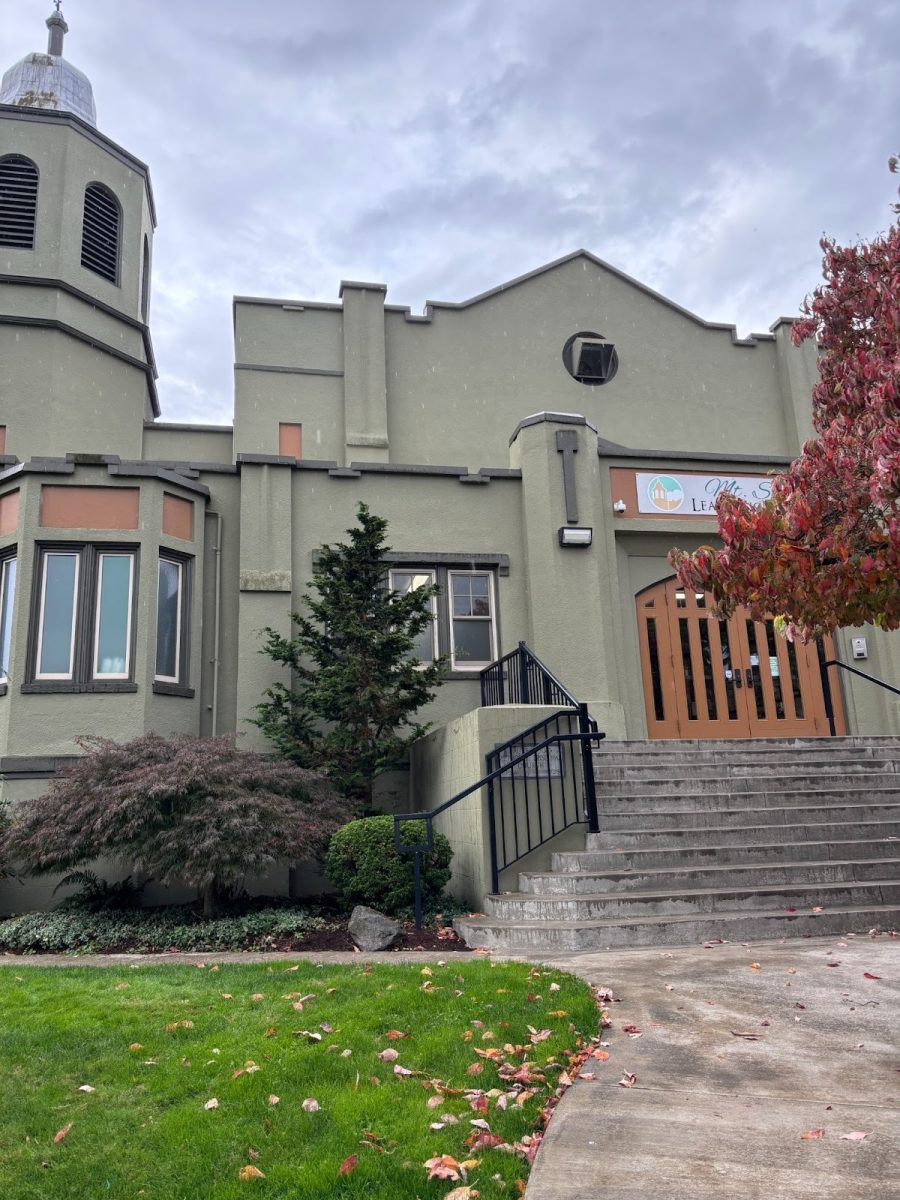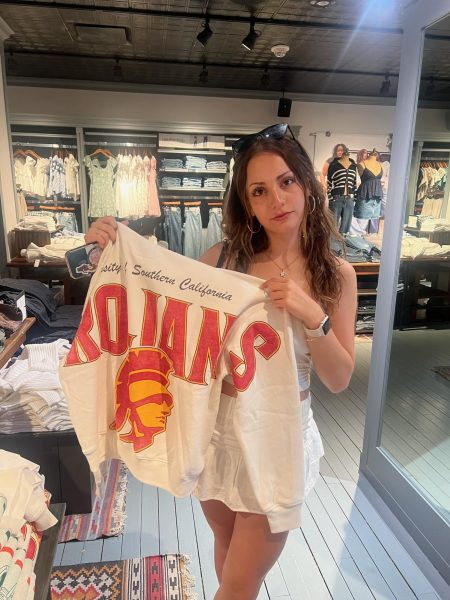
Have you ever wondered what attending a high fashion show might be like? Don’t worry, you might not have to fly to New York or Milan; Portland has its own Fashion Week! The Portland Fashion Week (PFW) fall 2024 show ran from September 16 through 22 and had enticing themes each night. For PFW’s 23rd year, they decided to change their venue to the Mercedes Benz of Wilsonville, a stunning and classy venue for a week of sustainable fashion. PFW stands out as a beacon of sustainability in the fashion industry. Unlike traditional Fashion Weeks, which often perpetuate fast fashion cycles, PFW takes a unique approach to combating this issue. PFW encourages consumers to rethink their relationship with clothing by promoting second-hand shopping. The event also showcases Oregon-made apparel, highlighting the importance of supporting local talent and reducing carbon footprints associated with long-distance transportation. Additionally, PFW incorporates educational elements, offering workshops and panels on sustainable fashion practices.
It all began with founder Tod Hunter Foulk and his generational ties to textiles. With his daughter, Fiona Foulk, Hunter continued to create his family’s art, plaiting leather and braiding rope. This eventually took off, getting them into the fashion industry. While these two founded Portland Fashion Week, Hunter gives credit where it’s due, stating, “The old Portland fashion incubator was kind of a fashion fight club, and we were charter members. After it folded, so many designers and models still [didn’t] want to let the dreams go, and [PFW] was born of that.” Since the founding of PFW, they’ve been recognized for their excellent work in Time Magazine, the CFDA, and The HuffPost. According to The HuffPost, the environmental initiatives PFW runs make them “the world’s only carbon-negative fashion week.”
The mission of PFW is to promote sustainable fashion in an inclusive, drama-free, and safe environment. In the next few years, Foulk hopes to see the fashion industry blossom into “Slow fashion, sustainable fashion, and eco-chic [fashion] … [these] are now all the buzzwords, and we hope that world fashion follows these trends.” When PFW began, the climate was not on many designers’ minds; now, there is a greater awareness of the pollution and waste that both fast and old fashion brings. PFW prefers the slogan “Keep Portland Pretty” over the original slogan: “[we] rely on our decades-long tree-hugging reputation to showcase every facet of sustainability.” The organization is 100% volunteer-based and is entirely vegan, cruelty-free, and plastics-free, and they strive to continually cut their carbon footprint.
When it comes to PFW balancing local designers and established designers, Hunter states, “Big names like Macy’s, Hugo Boss, [and] Nike, are [all] recognized … but our hearts are with the little guys and always will be.” The Mercedes Benz showroom was turned into a glamorous runway full of stunning models, beautiful designs, and cameras. Attendees to Couture Night consisted of both tourists and locals , some being designers in their own right. One designer attending the show, Jacek, stated, “I’m a fashion designer only as a hobby, but I’m an interior designer as a profession.” His work is focused on “drama, surprise, and broken symmetries.” When asked if he’d ever produce designs, and possibly show them at a show similar to PFW, he responded, “Well, I’m trying to. I mean, I need to find a pattern maker and then fabricate it. So, it’s kind of there. I’m still too busy with my business. But, you know, if it happens, I’ll be very happy to.” PFW inspires many local designers, models, and creatives, and its mission is one many of us can get behind.
Throughout September and October 2024, major cities across the globe host Fashion Weeks, showcasing the latest trends and designs. Fashion Weeks happen twice a year, once in September to focus on spring and summer collections, and again in February for fall and winter collections.
The history of these shows dates back to the Second World War, which changed the global fashion industry significantly. Before World War II, most fashion magazines worldwide saw Parisian fashion as the epitome of style and innovation. However, with Paris occupied throughout the War, many publicists couldn’t make it to review the up-and-coming styles. This shift away from Parisian fashion prompted Elanor Lambert, one of the first widely known fashion publicists, to give space for magazines to view and discuss American fashion. The first Fashion Press Week was held in New York City on July 19, 1943, with Lambert behind it.
Lambert eventually became the founder of the Council of Fashion Designers of America (CFDA) and is known as one of the most important and influential figures in the history of American fashion. When her Fashion Week was first organized, it was known as “Press Week,” which highlighted and gave editors and fashion journalists a chance to view and discuss American designers’ creations. After Press Week’s popularity, American designers started to appear more frequently in publications like Harper’s Bazaar and Vogue. French couturiers had long been the object of affection and respect, but American ready-to-wear designers started to gain the same status.
After that, Press Week changed its name to Fashion Week, and shows were held throughout New York. It was evident right away that the concept was a huge success. It gained popularity quickly and was held biannually, evolving into what is now known as New York Fashion Week. Not only did Lambert establish Fashion Week, but she also created the Metropolitan Museum’s Annual Gala, better known as the Met Gala, which holds great significance in celebrating and critically examining fashion. Lambert played a pivotal role in shaping the landscape of American fashion, leaving an indelible mark on the industry. Her legacy has elevated American fashion designers to international prominence. As the world evolved, so did Fashion Week, with new trends and shifts continually emerging.
These once-exclusive events for industry insiders have evolved into global shows that captivate audiences worldwide. Fashion Weeks uplift creatives, both big and small, and bring attention to the issues within the Fashion industry. While the main four Fashion Weeks, New York, London, Milan, and Paris are the most notable, don’t forget the local and regional Fashion Weeks; they’re putting in just as much hard work!


































